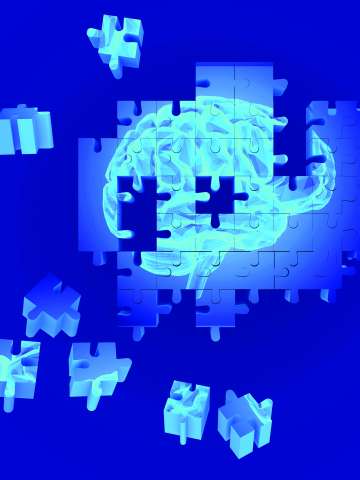Behavioral Neurology
Our behavioral neurologists diagnose and treat patients with complex neurocognitive disorders. We are one of the few centers in the U.S. dedicated to treating early-onset Alzheimer’s disease.

What is behavioral neurology and why choose UCLA Health?
Specialists within the UCLA Health Behavioral Neurology Program diagnose and treat rare disorders that affect brain function (neurocognitive disorders). We provide world-class care and conduct research for these disorders in locations close to home.
Highlights of our program include:
- Collaborative, patient-centered approach: When you are referred to us, we work closely with your referring provider to ensure you receive appropriate follow-up care. Our experts offer insights and treatment recommendations to help guide referring providers. We can also provide follow-up on-site care, based on your preferences and needs.
- Research emphasis: In addition to caring for patients, our providers continually research the causes and potential treatments for these rare conditions. Our participation in clinical trials allows eligible patients access to new and promising treatments.
- Access to multiple resources: As part of the Mary S. Easton Center for Alzheimer's Research and Care, our behavioral neurologists work with an extensive network of specialists. Patients in our program benefit from access to psychiatrists, neuropsychologists, neuroradiologists, speech pathologists and geneticists.
- Subspecialization: We are one of only a few centers in the U.S. dedicated to studying and treating early-onset Alzheimer’s disease. Our specialists have diverse experience in all types of cognitive disorders, including those that are rare and difficult to diagnose.
Our areas of behavioral neurology care
The UCLA Health Neurobehavior Clinic is part of the behavioral neurology program. Specialists at this outpatient clinic evaluate and treat patients with early-onset Alzheimer’s disease, frontotemporal degeneration and other progressive brain disorders.
During the evaluation process, patients complete two clinic visits with diagnostic testing between appointments. After diagnosis, our specialists share information with the referring physician to ensure appropriate follow-up treatment with the provider or through our clinic. Our specialists also provide counseling and educational resources to patients, families and caregivers.
Neurocognitive disorders we treat
Our specialists treat a range of rare neurocognitive disorders, including:
Early-onset Alzheimer’s disease (EOAD)
EOAD is a rare form of Alzheimer’s disease that affects people younger than 65. Alzheimer’s is a progressive condition that causes a decline in memory, problem-solving and other cognitive skills. While Alzheimer’s usually affects older adults, EOAD affects younger adults, often in their 40s and 50s.
People with EOAD often have symptoms that differ from traditional Alzheimer’s disease, including:
- Decline in language skills
- Loss of spatial or visual abilities
- Reduced ability to do math
Frontotemporal dementia (FTD)
This form of dementia occurs because certain nerve cells in the brain start to die. These nerve cells are in the frontal and temporal lobes, which control movement, language and comprehension.
FTD symptoms may include:
- Difficulty with speech or comprehension
- Loss of interest in usual activities
- Personality changes
- Socially inappropriate or embarrassing behaviors
- Unusual compulsions or eating behaviors
Other progressive brain disorders
Additional progressive brain conditions we treat include:
- Primary progressive aphasia (PPA): This is a type of FTD that causes difficulty communicating. People with PPA may struggle to speak or understand language.
- Corticobasal degeneration: This condition occurs when multiple brain cells become damaged or die. It affects the brain’s outer layer (cortex) and a deep part of the brain called the basal ganglia. Problems with speech, balance, memory or swallowing gradually worsen.
- Posterior cortical atrophy: This condition is caused by progressive deterioration of the posterior cortex, the brain’s outer layer at the back of the head. It usually affects people between the age of 50 and 65. Symptoms may include visual problems, hallucinations or difficulty with math or spelling.
- Progressive supranuclear palsy: This rare brain condition occurs when brain cells die in the parts of the brain that control movement and coordination. It causes problems with balance, movement, hand-eye coordination and swallowing.
Tests and treatments behavioral neurologists offer
Our specialists use a variety of advanced tools to diagnose and treat neurocognitive disorders. We may use:
Neurocognitive testing
The first step to effective treatment is an accurate diagnosis. Testing to diagnose a neurocognitive disorder may include:
- Blood tests to rule out other conditions that could cause similar symptoms
- Functional brain imaging, such as fMRI or positron emission tomography (PET) scan, to look for changes in the brain’s size, structure or function
- Neurogenetic assessment to evaluate whether a patient has certain genes that could lead to neurological conditions
- Neuropsychological assessment to understand how well the brain is functioning
Neurocognitive treatments
There is no cure for the rare neurocognitive conditions we treat. But we can offer treatments to ease symptoms and improve quality of life. Depending on the condition and symptom severity, patients may benefit from:
- Medications: Some medicines may help patients concentrate or function better. Providers also may prescribe medications for the secondary symptoms of neurocognitive disorders. For example, a patient may take antidepressants to reduce anxiety or prescription sleep aids to ease insomnia.
- Lifestyle changes: A healthy lifestyle may help people live a better quality of life for longer. Eating a nutritious diet, exercising regularly and lowering stress can all be effective.
Director
- Daniel Okobi, MD, PhD, Fellow
- Imaad Nasir, MD, Fellow
Contact us
Call 310-794-1195 to request an appointment with a behavioral neurologist at UCLA Health.
Find your care
Our behavioral neurologists specialize in rare and atypical neurocognitive disorders. To learn more about our services, please call 310-794-1195.

